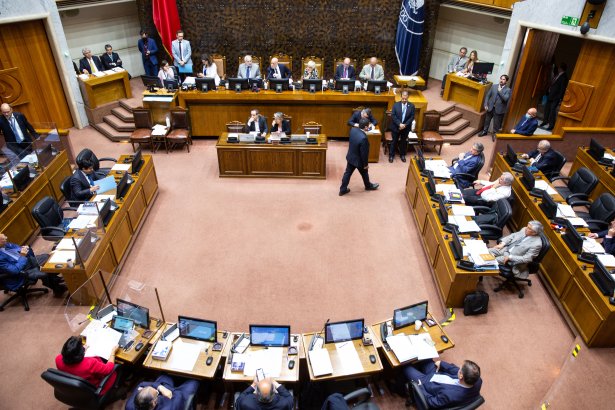President Gabriel Boric’s government has taken a crucial step by vetoing a controversial Usurpation Law that it argues contained dangerous elements that could incite a form of paramilitary justice. This decision has generated deep discontent in the opposition, particularly among the right-wing senators who promoted the original legislation.
The Usurpations Law, a piece of legislation promoted by the political right in Chile, has been the subject of heated debate in recent months. The Boric government, in an effort to address concerns related to vigilante justice and prison sentences for usurpers, decided to veto significant parts of the law. The veto eliminated the controversial “autotutela” or “justice by one’s own hands” and eliminated the penalty for “transitory” usurpations. However, prison sentences were maintained, with a variation depending on the severity of the usurpation.
The Reaction of the Right and a New Bill
The reaction of the opposition, particularly Chile Vamos, has been outrage at the modifications proposed by the government. They feel that they have been betrayed and have announced the presentation of a new bill that seeks to protect the right to property and the security of citizens. This energetic reaction, led by figures such as UDI deputy Henry Leal and Renovación Nacional parliamentarian Miguel Mellado, reflects the deep political division around this issue.
One of the most controversial points of the Usurpation Law has been privileged self-defense, which allowed justice by one’s own hands in situations of usurpation. The presidential veto eliminated this provision, arguing that it promoted self-protection. Although the possibility of a prison sentence in serious cases of usurpation was maintained, the decision to leave the determination of sentences in the hands of the judge has generated discontent on the right.
The Balance between Security and Human Rights
Boric’s government has defended its presidential veto as an attempt to balance citizen security with respect for human rights. The Minister of the Interior, Carolina Tohá, highlighted that the original bill had become something “very dangerous” during its legislative process. This position reflects a commitment to justice and legality, as well as the importance of avoiding the promotion of violence as a means of resolving conflicts.
The presidential veto of the Usurpation Law in Chile is an example of the delicate task of balancing the security of citizens with respect for human rights. While the opposition is outraged and promises a new bill, the Boric government defends its decision as a necessary measure to avoid a form of vigilante justice. This debate highlights the importance of seeking consensual solutions that protect the rights of all citizens without compromising fundamental democratic and legal principles.


